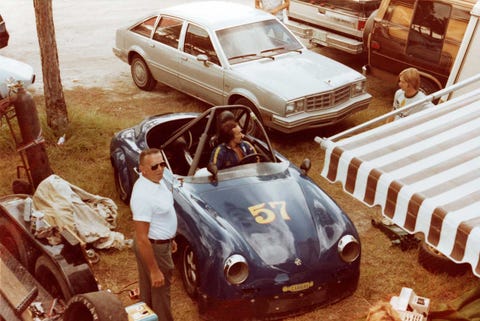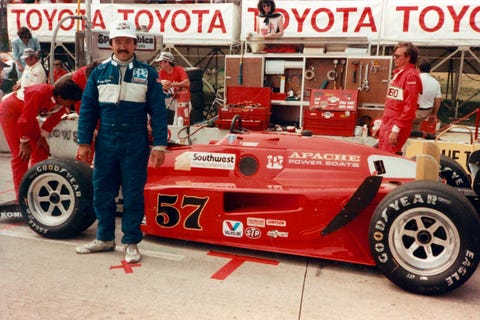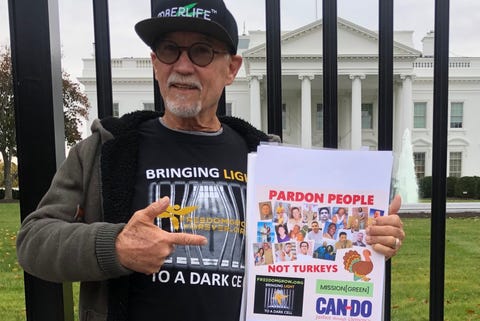
Randy Lanier wanted to be a race car driver from a very young age, with dreams of competing in top-tier events such as the Indianapolis 500. But for a South Florida hippy, and small-time weed dealer, in the 1960s, this goal was out of reach.
“To really be an up-front runner in racing, it takes not only a team, but a team with quite a bit of funds,” Lanier told Car and Driver on the occasion of the publication of his new memoir Survival of the Fastest: Weed, Speed, and the 1980s Drug Scandal that Shocked the Sports World, which he wrote with automotive journalist and author A.J. Baime (Go Like Hell, The Arsenal of Democracy).
In order to acquire the money he needed to be competitive on the track, Lanier came up with a novel plan. He would become head of one of the largest marijuana smuggling operations in American history, expanding his enterprise until he was shipping in hundreds of thousands of pounds of weed from South America in a single haul.
The independent racing team he founded with the profits, Blue Thunder, was quite successful. In its first year, the team won the IMSA Camel GT series. In 1986, Lanier raced in the Indy 500 and was named Rookie of the Year. But the glory was short-lived. His growing efforts coincided with the growing efforts of the so-called War on Drugs. Living like a real-life Miami Vice bad guy caught up with him. In 1987, Lanier was arrested and given a sentence of life in prison without parole.
The detailed tales of South American drug lords, large-scale weed cultivation, fast boats, even faster cars (on and off the track), wild partying, and Miami real estate are fascinating. As is the nearly schematic attention to detail Lanier brought to his smuggling operation, which featured portable weed-bale transporting moving walkways; unsuspecting shipping crews; dummy cargo (including a zillion tons of cement); giant cargo vessels with secret compartments; and CIA-level stakeouts, surveillance, and gadgetry.
Even more interesting, perhaps, is the story of Lanier’s reformation in prison, and (spoiler alert) his eventual release. This seemed particularly compelling, as it worked in direct contrast to the extremely punitive nature of the contemporary criminal justice system.
“Prison is not set up at all for reflection and self-growth at all,” Lanier said. “It’s set up for recidivism.” Lanier credited his eventual parole, after 27 years of incarceration—seven of them in solitary confinement—to his spirituality. Youthful work with a guru taught him the ability to change his experience by changing his perception. He parlayed this attitudinal positivity into reading, studying, and contemplating. Eventually, he became a mentor, a yoga instructor, and a suicide watch volunteer—trained to sit and talk with people who tried to take their life—in prison.
Now on the outside, Lanier has dedicated his life to providing services, comfort, and eventually freedom to other non-violent cannabis offenders. He currently accomplishes these campaigns and actions through his not-for-profit, Freedom Grow. “These people should not be currently incarcerated when there are 38 states, and all these corporations, making millions of dollars selling thousands of pounds of cannabis, legally, every week,” Lanier said. “These people need to come home.”
To fund his initiative, he now has a license from the state of New Jersey to legally cultivate weed.
This content is created and maintained by a third party, and imported onto this page to help users provide their email addresses. You may be able to find more information about this and similar content at piano.io
#RacerWeed #Dealer #Randy #Lanier #Recounts #Wild #Ride #Book
Source link








